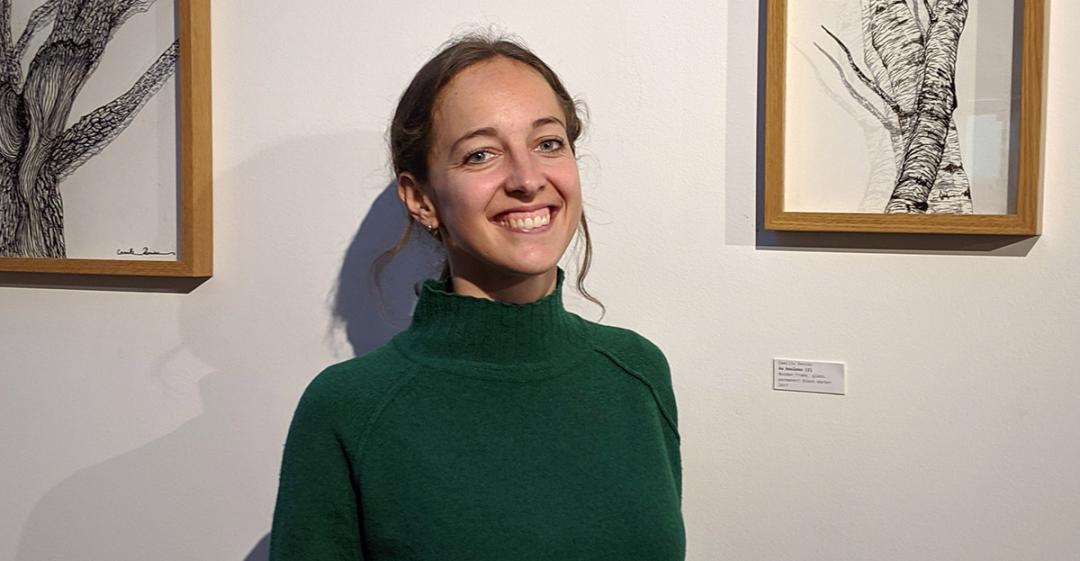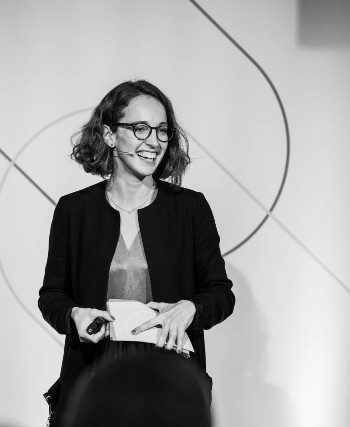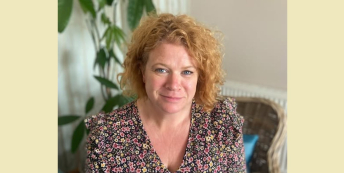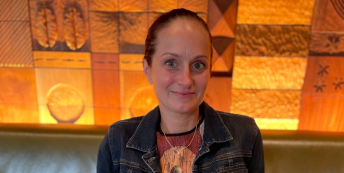“It felt like I was caught in a hamster wheel, getting increasingly frustrated.”

What work were you doing previously?
I worked at Google for almost seven years, as a Sales & Partnerships manager in digital marketing.
What are you doing now?
I am Founder and Director of Project Roots, an online shop where I sell my artwork.
I also have a part-time job on a short-term contract in the Google for Education team.
Why did you change?
Since I started my career, I'd always chased the next 'carrot' without intrinsic motivation or personal happiness in mind.
I was just ticking boxes – a good job, a good company. It felt like I was caught in a hamster wheel, getting increasingly frustrated.
I thought there must be more to a professional life. Inspired by stories of successful entrepreneurs and leaders, I decided to change.
When was the moment you decided to make the change?
Earlier this year after changes in my team, I decided to look for a new role.
I interviewed for a new full-time role in the same company and was offered a position that, on paper, ticked all my boxes, but I really didn’t feel excited.
In that moment, I realised I needed to stop chasing what others thought was good for me and focus instead on what really motivated and excited me, which is my creative work.
Are you happy with the change?
Yes, I’m very happy with the change.
I feel a lot more serene and balanced. I feel like I’m expressing my full self building Project Roots and I’m full of ideas and excitement.
Part-time employment is also really working out for me, as it allows me to structure my life and still maintain a dynamic social and professional network. The role is also very interesting, so that helps!
What do you miss and what don't you miss?
I miss being part of something big, and I really miss the teamwork.
I don’t miss the feeling of being an insignificant cog in a big machine, and I don’t miss the struggle to wake up in the morning to get myself to work.
Mostly, I don’t miss my old self: closed, critical and negative!
How did you go about making the shift?
It took me a year.
The year before I made the shift I was not in a good place. So, even though I was terrified of not having a salary for three months, I took a sabbatical.
I invested this time in Project Roots: building the website, making a video, getting inspiration, creating. This helped me to release all my frustrations, face my financial anxieties (and realise I would figure it out) and get excited about life again.
I came back to work ready for a change, but I didn’t know what or how yet. The following January, there were changes in my team and this external trigger pushed me to act. I started exploring different options and scenarios for a change, and working on Project Roots is what really excited me.
During the COVID-19 lockdown, I further developed Project Roots and realised that it had so much potential. I had a real vision, a great response from the market and a very long to-do list of things to improve and grow.
At this point, I felt it was the right time to shift, so I decided to rent out a studio space in a creative community.
What didn’t go well? What wrong turns did you take?
What is challenging at the moment is setting the boundaries for part-time work.
Shifting from one type of work to the other is still something I’m trying to improve.
How did you handle your finances to make your shift possible?
After working full-time for eight years, like many I’d become very anxious about my finances.
The fear of starting a business and losing the lifestyle I'd built for myself was daunting.
However, after speaking to several founders, I realised few entrepreneurs start off full-time on their business. To secure enough income to pay my mortgage, I decided that starting with a part-time job for six months would be a great way to support my shift.
It felt important to have a side job to reduce stress and feel empowered when starting a business, instead of being overrun by the financial burden. I plan to progressively reduce the amount of days worked as Project Roots sales increase.
What was the most difficult thing about changing?
For my career change I had to spend time in this 'in-between' zone doing exploration and thinking to really build up to a powerful shift.
As an action-oriented person, this was uncomfortable for me.
I also found that self-doubt and maintaining a feeling of confidence and empowerment throughout the process was difficult. It’s so easy to fall into the 'little' you and give up.
What help did you get? 
I had one-to-one professional coaching sessions once a fortnight for a year.
I can’t recommend coaching enough; it made the difference for me. Without this year of working on my purpose, my saboteur voices and building my project, I wouldn't have had the clarity and confidence I had when making the shift.
Most importantly, being supported and encouraged by my partner and my family in the last year has been crucial.
What resources would you recommend to others?
'The Artist’s Way' book by Julia Cameron (parts of it were helpful).
Journaling. Writing daily in the mornings helped me work through my self-doubt, generate new ideas, and transform frustrations into empowerment.
Connecting and talking to people who had changed careers. Don’t hesitate to reach out!
Also, surround yourself with friends and family who care about you and believe you deserve a more fulfilling career.
What have you learnt in the process?
To not be afraid, and be brave.
All the obstacles I came across were in my head! Understanding this and working through this brought me a sense of freedom and confidence.
There are many ways to make starting a business work financially, I just had to think about what would make it work for me specifically.
What do you wish you'd done differently?
I’m not sure there is anything I would have done differently at the moment.
It feels tempting to say I wish I'd done this sooner, but it takes the time it does and it’s hard enough to do a shift altogether.
What would you advise others to do in the same situation?
Be ready to explore your inner world and really face your fears. This is what will get you there.
Get help, talk about it. It’s too hard to do alone.
Don’t stay thinking and daydreaming about change. Start making / building / exploring the ideas you come up with. All you need is to start somewhere. Where that will take you is a mystery, but it can’t be worse than that Sunday sinking feeling.
To find out more about Camille's work, visit projectrootsart.com.
What lessons could you take from Camille's story to use in your own career change? Let us know in the comments below.



